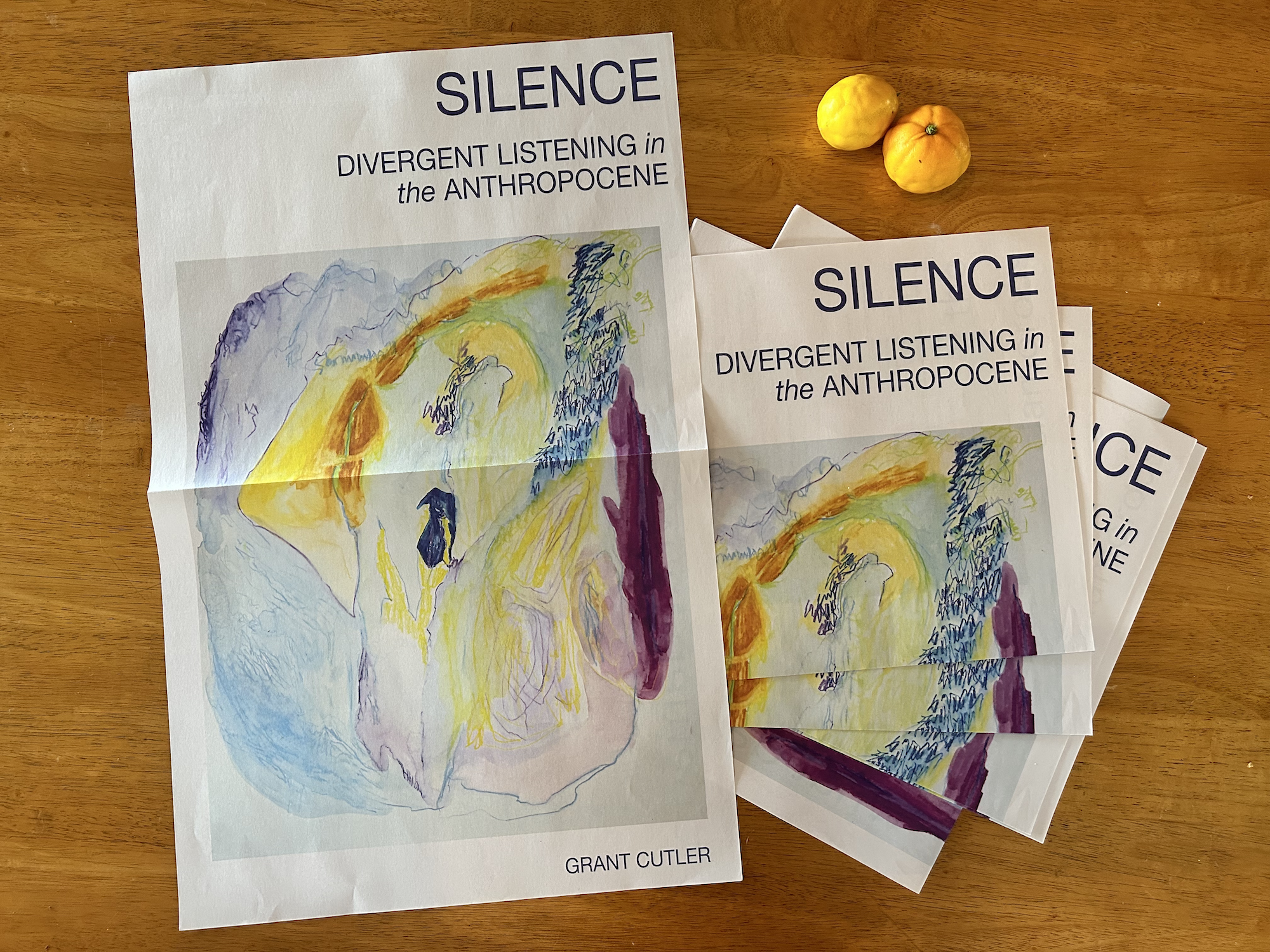
Silence: Divergent Listening in the Anthropocene
Divergent listening describes any listening practice which seeks to raise consciousness or expand on our understanding of reality through the perception of sound.
How might divergent acts of listening foster resilience in threatened environments? Can we reroute our acoustic energy toward more bio-inclusive living? How might prioritizing intentional listening practices aid in developing a more holistic relationship with earth’s ecosystems? What damage might be undone when we decolonize our sonic landscapes?
Silence: Divergent Listening in the Anthropocene (2021) is a non-durational multi-channel sound installation created from hundreds of hours of field recordings collected in endangered soundscapes throughout the world. The audio has been assembled to create a composition which pulls the background to the foreground: an attempt to de-center human hubris and highlight natural soundscapes on the edge of extinction.
The aftermath of environmental destruction is often quiet, sometimes even silent, as the life-affirming sounds of the living constituents have been removed as a matter of course. Silence offers a space of quiet reflection, a place to ask questions, share, or rest. The softness of the sounds is not meant to represent the complacency that has allowed this turmoil to continue, but rather it is an invitation to meditate on this state of affairs. It is a room to imagine a more inclusive future, a world of resilience, energized by the clamorous singing of countless life-forms.
Resilience is about adaptation, evolution, and creativity. Repairing the relationship with our natural ecosystems demands a paradigm shift - decentering human “progress” in favor of a more holistic approach to living within our environments; focusing on authentic connections rather than illusory divides. Can we re-learn the language of our ecosystems?
Listening is how we place our affections into the world. It helps us develop compassion, empathy, and understanding for our own being, our communities, and our environments. How might divergent listening ease our return to generosity and kindness for ourselves, our neighbors, and our shared world? What voices will we choose to guide us? Can we challenge ourselves to pause, take a breath, and listen before we react?
Listen to an excerpt here.
and view the project website here.
How might divergent acts of listening foster resilience in threatened environments? Can we reroute our acoustic energy toward more bio-inclusive living? How might prioritizing intentional listening practices aid in developing a more holistic relationship with earth’s ecosystems? What damage might be undone when we decolonize our sonic landscapes?
Silence: Divergent Listening in the Anthropocene (2021) is a non-durational multi-channel sound installation created from hundreds of hours of field recordings collected in endangered soundscapes throughout the world. The audio has been assembled to create a composition which pulls the background to the foreground: an attempt to de-center human hubris and highlight natural soundscapes on the edge of extinction.
The aftermath of environmental destruction is often quiet, sometimes even silent, as the life-affirming sounds of the living constituents have been removed as a matter of course. Silence offers a space of quiet reflection, a place to ask questions, share, or rest. The softness of the sounds is not meant to represent the complacency that has allowed this turmoil to continue, but rather it is an invitation to meditate on this state of affairs. It is a room to imagine a more inclusive future, a world of resilience, energized by the clamorous singing of countless life-forms.
Resilience is about adaptation, evolution, and creativity. Repairing the relationship with our natural ecosystems demands a paradigm shift - decentering human “progress” in favor of a more holistic approach to living within our environments; focusing on authentic connections rather than illusory divides. Can we re-learn the language of our ecosystems?
Listening is how we place our affections into the world. It helps us develop compassion, empathy, and understanding for our own being, our communities, and our environments. How might divergent listening ease our return to generosity and kindness for ourselves, our neighbors, and our shared world? What voices will we choose to guide us? Can we challenge ourselves to pause, take a breath, and listen before we react?
Listen to an excerpt here.
and view the project website here.